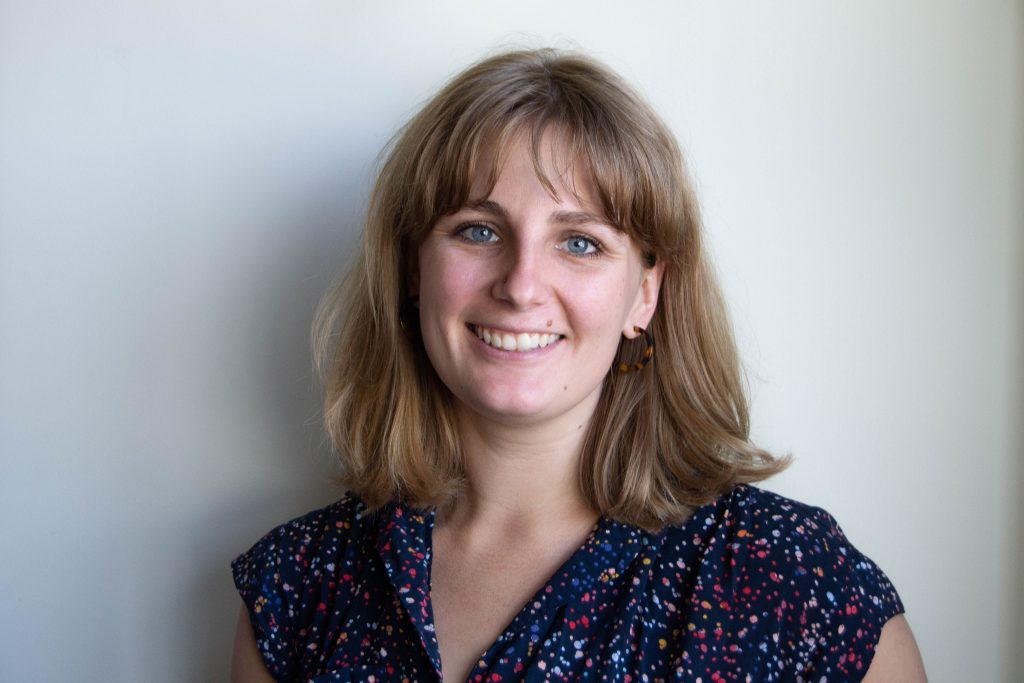
We interviewed psychological foundations of education PhD student Ashley Hufnagle about her experience in the program and advice for prospective students.
In a few sentences please describe your research interests.
In an overarching way, my research fuses social psychology and educational psychology with the ultimate goal of applying findings to improve higher educational settings.
Questions that keep me up at night:
- How can I create effective interventions that educators will actually use (and students will enjoy)?
- How can we create more socially informed teaching practices and university environments that support all students?
I aim to understand the underlying psychological processes and social-structural factors that perpetuate inequalities in academic settings in order to develop data-driven interventions for students. I am particularly invested in cultivating effective and sustainable researcher-practitioner partnerships aimed at fostering student resilience, academic engagement, and well-being.
How did your path lead to the Department of Educational Psychology and the psychological foundations of education program?
Early on in my academic career, I was a bit of a “dabbler” but I think I always knew I was invested in: psychology, teaching/education, and solving problems in (their authentic) context. As an undergraduate, I was a psychology major and worked as a lab manager for two labs—one broadly focused on behavioral health and social psychology and the other tracked social-cognitive development from infancy to preschool.
Later, I worked in the non-profit sector in Ireland for a program called Parents and Kids Together (PAKT). My research interest in “resilience” began here as the program used this line of research as an underpinning for their curriculum development.
After returning to the U.S., this topic of “promoting resilience” became a key component of my undergraduate thesis.
Directly after graduation, I uprooted from Oregon and headed to North Carolina to work for the “Resilience Project,” which was conducting a four-year longitudinal study of college students at four sites in the southern U.S.. One of my primary roles on this project was to serve as a liaison between researchers and practitioners. For me, this was a perfect dose of research and application and also confirmed my hunch that graduate school was the right route for me.
Upon reflection, there appeared to be a common thread between all of these experiences and the University of Minnesota’s Department of Educational Psychology seemed like the perfect setting to bridge my past experiences and allow all of my interests to coalesce.
What is something you’ve most enjoyed about your experience?
I really enjoy being surrounded by people (both peers and mentors) who are invested, curious, and engaged every day! You’ll often find us tossing around ideas and chewing on questions even when we are outside of the office. I particularly appreciate the close relationships I have been able to cultivate with my professors—they are all so approachable, inclusive, and have so much expertise to share! It is very easy to pick anyone’s brain or try to strike a collaboration.
What is most exciting about your work?
I think one of the most exciting things about working in this field is that I can easily see direct connections between our research and its practical utility. This occurs on multiple levels—from applying it directly in a classroom setting, to shifting how we structure schools and programs, to informing policy, etc. Being able to harness rigorous scholarship to answer some of our most pressing questions and attempt to address thorny social problems is something that I really value. In the words of one of my academic heroes, Kurt Lewin, “Research that produces nothing but books is not enough.”
What has been most challenging parts about graduate school?
I think one of the most challenging things about graduate school can be finding balance between your various competing responsibilities, while also maintaining your own well-being. It can be easy to take on too much or spread yourself thin but I’ve found being really purposeful about structuring the amount of time I give to certain projects to be very helpful. I also try to prioritize exercise and sleep as well as allow myself at least 1 day a week that is completely free from work/school. A break makes you all the more efficient later when you come back fresh!
How has your cohort helped you along the way?
I think my cohort has provided a really important community/support network. The reality is that graduate school can be really challenging at times so it is definitely helpful to have people who personally understand the graduate school experience to share timelines and hurdles, as well as successes with! I think even when we have started to diverge in an academic sense, as everyone begins to find their distinct areas of expertise, the camaraderie has always remained.
How do you plan to use what you are learning and your degree?
Ideally, I would love to secure a faculty position as it would allow me to both continue my line of research as well as offer plenty of opportunities to teach/mentor students.
Is there any additional information you would like students considering psych foundations to know?
Prospective students are more than welcome to reach out to me via email, hufna011@umn.edu if they would like!



